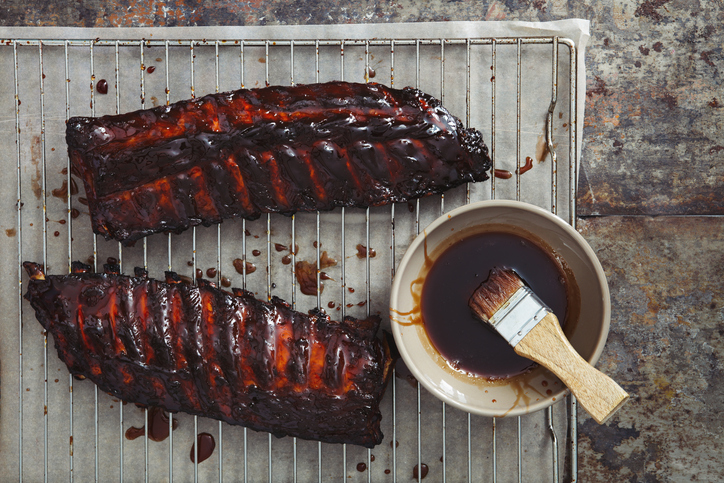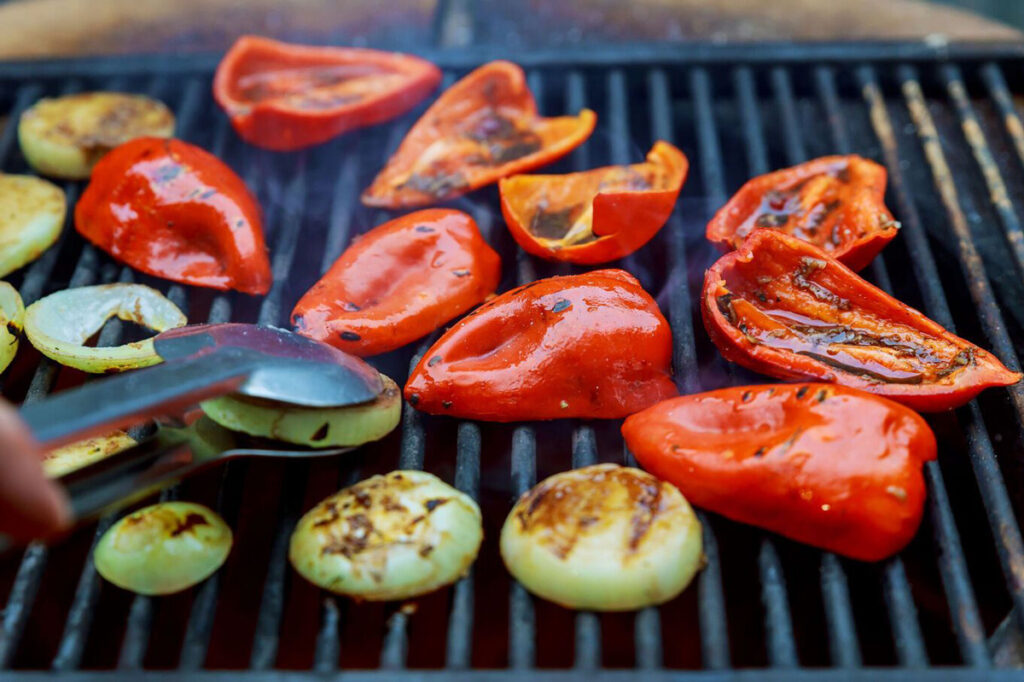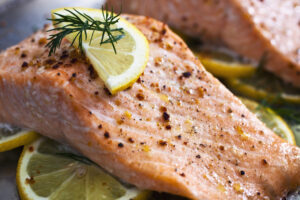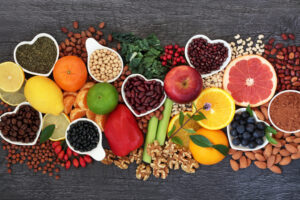The spread of COVID-19 may have changed your summer plans as you did a “staycation” or hosted a barbecue with a smaller group. But as you enjoy this atypical summer, it’s also important to remember a few simple ways to help lower your cancer risk and stay healthy.

Follow Cancer-Safe Grilling Guidelines
Cooking meat at high temperatures is known to produce cancer-causing chemicals. Polycyclic aromatic hydrocarbons (PAHs) are present in flames that can stick to the surface of meat and heterocyclic amines (HCAs) form in meat when its proteins react to the intense heat of the grill. In lab studies, these substances have been linked to development of cancer through changes to the DNA.
But it is possible to make summer grilling both healthier and more flavorful by following these five steps:
- Mix up the meat. Diets high in red and processed meat increase cancer risk, so don’t stick to just burgers and hot dogs. Try using herbs and sauces to enhance the flavor of chicken and fish that should be added to your plate.
- Marinate. Studies suggest that marinating meat, poultry and fish for at least 30 minutes can reduce the formation of HCAs. Using a mixture that includes vinegar, lemon juice or wine along with oil, herbs and spices seems to be the key.
- Partially pre-cook. You can reduce the time your meat is exposed to flame by partially cooking it in a microwave, oven or stove first.
- Stay low. Cook the meat over a low flame. Doing so can reduce the formation of both HCAs and PAHs and help keep burning and charring to a minimum.
- Add some color. Grilled vegetables taste great! And by loading up on plant foods, you can cut back on red and processed meats. Try onions, zucchini, eggplant, bell peppers or tomatoes in thick slices on the grill.






